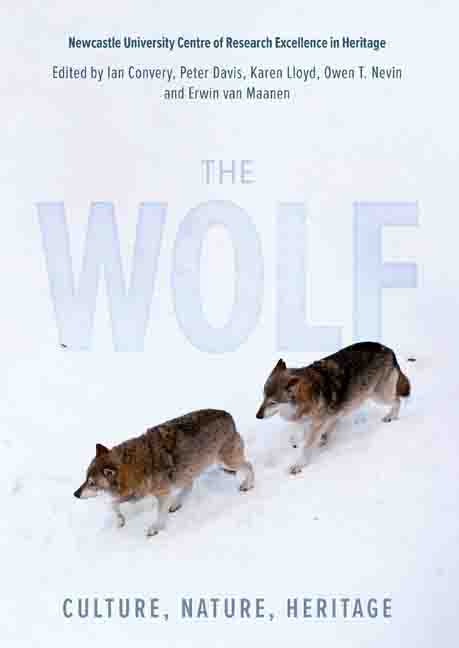Book contents
- Frontmatter
- Dedication
- Contents
- List of Illustrations
- Preface and Acknowledgments
- List of Abbreviations
- Poem: Trophic Cascade by Camille T Dungy
- Foreword
- Part I Imagining the Wolf
- Part II What Makes the Wolf
- Part III Return of the Wolf
- Part IV Personal Encounters
- Afterword: The Ecological Disadvantage of Living on an Island
- Glossary
- List of Contributors
- Index
17 - ‘Hunger-Greedy Appetite’: The Wolf in Early-Modern English Natural History
Published online by Cambridge University Press: 10 January 2024
- Frontmatter
- Dedication
- Contents
- List of Illustrations
- Preface and Acknowledgments
- List of Abbreviations
- Poem: Trophic Cascade by Camille T Dungy
- Foreword
- Part I Imagining the Wolf
- Part II What Makes the Wolf
- Part III Return of the Wolf
- Part IV Personal Encounters
- Afterword: The Ecological Disadvantage of Living on an Island
- Glossary
- List of Contributors
- Index
Summary
In the first Act of Shakespeare's Troilus and Cressida (c. 1601–2), the Greek king Agamemnon summons his war cabinet to discuss why they have failed to capture Troy. In a long speech Ulysses blames the quarrelsome Greeks themselves. When a community rejects the natural law of social degree operating under a king-lawgiver, the result is ‘chaos’:
Then everything includes itself in power,
power into will, will into appetite;
and appetite, an universal wolf,
so doubly seconded with will and power,
must make perforce an universal prey
and at last eat up himself. (Troilus and Cressida, I.iii. lines 119–24)
Shakespeare and his fellow-poets and dramatists in early-modern England had no doubt that the wolf was a bad lot: it was a natural symbol of the violence and evil which might emerge out of the cover of darkness.1 In deploying this imagery, they took their cue from the natural historians. In 1607 – the year Shakespeare wrote Macbeth – the Cambridge-educated London clergyman Edward Topsell (1572–1625) published The History of Four-footed Beasts, including amongst them the wolf. But what Topsell, like his predecessors and contemporaries, designated as facts of nature were based on material found not only in the earlier bestiaries but also in fable and fiction. He was not, that is, writing science or proto-science. His own word was ‘History’; ‘Historia’ in early modern Europe shared the same etymological root as ‘story’ and meant ‘an account’. So although Topsell brought new standards of scholarly reference to his work on the wolf, before looking at his work in detail it is worth summarising how his natural history shared, or differed from, the assumptions common to other genres of writing in early modern England, thereby arriving at some understanding of how he interpreted the possibilities inherent in ‘History’.
TOPSELL's PREDECESSORS: FABLE AND BESTIARY
One of the oldest traditions of constructing stories about animals inherited by early-modern writers with a view to indicating the epigrammatic moral they provided was to be found in the ‘subtyl histories and Fables’ of the Greek writer Aesop (c. 6th century BC). These were translated into English via the French by the printer-publisher William Caxton (c. 1422–c. 1491) in 1484, and re-translated by different writers over the 16th century (Blake and Santos 2017).
- Type
- Chapter
- Information
- The WolfCulture, Nature, Heritage, pp. 191 - 202Publisher: Boydell & BrewerPrint publication year: 2023



